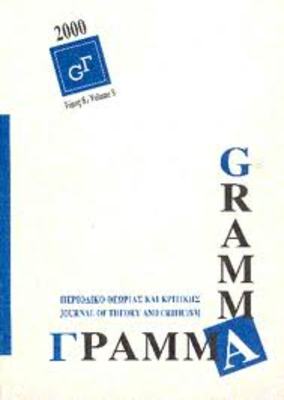Homogenizing the masses : American republican ideology and the threat of “intemperate democracy” in Robert Munford’s The Patriots (c. 1777)
Part of : Γράμμα : περιοδικό θεωρίας και κριτικής ; Vol.18, No.1, 2010, pages 31-48
Issue:
Pages:
31-48
Section Title:
The self, the community and nation in 18th and 19th century literature
Author:
Abstract:
The creation of the American nation and the spread of American nationalism relied heavily upon a homogenizing social philosophy that extolled liberty and equality and united all citizens in the promotion and demonstration of public and private virtue. However, despite the much-advertised “self-evident” truths, early American society was tormented by fears of internal dissension and the cultural disruption of an “unqualified” mass of non-Americans. This paper examines how the concepts of the “individual ” and the “mass” were implicated in the ideological mechanisms of the political ideology of republicanism which tended to smooth over the nuances and complexities of a hardly acknowledged ethnically and culturally heterogeneous society. By focusing on Robert Munford’s post-revolutionary satire The Patriots (c. 1777) as the only dramatic attempt of the time that exposed the limits and contradictions of the republican experiment, this paper will probe into the ideological illusionism of republicanism and explore the reality of the nativist exclusiveness of American society and the rigid boundaries of the American political identity.
Subject (LC):
Notes:
Περιέχει βιβλιογραφία.The individual and the mass: literary and cultural reflections




